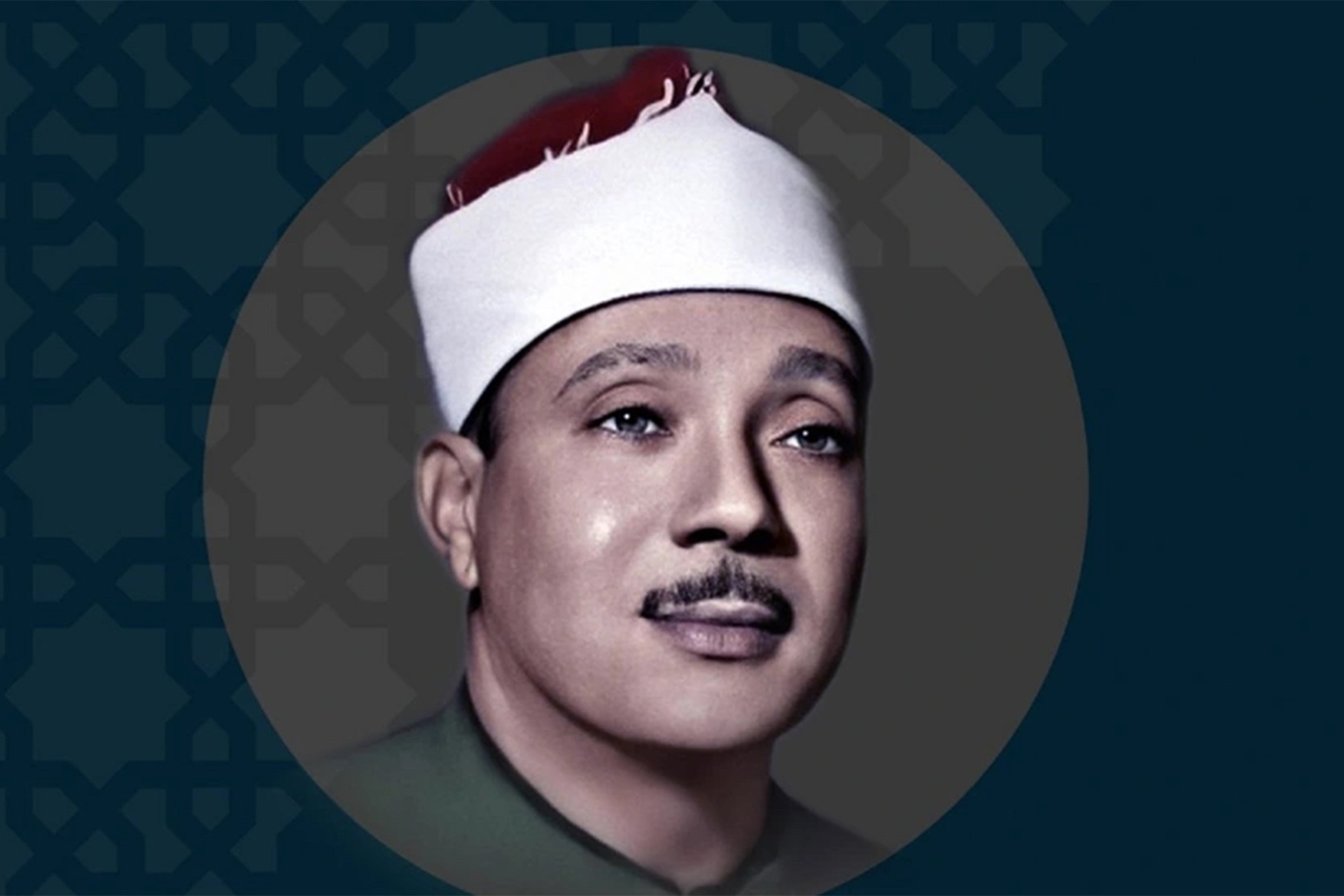Sheikh Abd al-Basit Abd al-Samad is considered one of the most famous reciters of the Holy Book of God, an Egyptian. He was born on January 1, 1927. He memorized the Qur’an when he was 10 years old, then mastered the readings. He became famous locally and internationally. He died on November 30, 1988.
Birth and upbringing
Abd al-Basit Muhammad Abd al-Samad Salim Daoud was born on January 1, 1927 in the town of Armant in the Qena Governorate in Upper Egypt, and he grew up in an environment that cares about the Holy Qur’an in memorization and recitation. And the father is Sheikh Muhammad Abd al-Samad, and he was an employee in the Ministry of Communications, and one of the great memorizers of the Qur’an, and Sheikh Abd al-Basit has two brothers who memorized the Holy Qur’an, Mahmoud and Abd al-Hamid.
He has 3 sons, Hisham, Yasser, Tariq.
Sheikh Abd al-Basit Abd al-Samad learned the sciences of the Qur’an and readings in the village of Asfon (Egyptian press)
Scientific study and training
He began learning the book in his village at the age of six, and completed memorizing the entire Qur’an at the age of ten.
He learned the sciences of the Qur’an and readings in the village of Asfon al-Mata’na, which is affiliated to the Esna Center, near Armant.
Then he reviewed the Holy Qur’an at the hands of Sheikh “Muhammad Salim” and memorized the Shatibiyyah with him. Then he mastered the ten recitations of the Holy Qur’an and won the title of Sheikh, and his fame spread throughout Egypt.
religious experience
Sheikh Abd al-Basit moved to Cairo in 1950, and he joined the Egyptian Radio in 1951 when he was in his twenties. His first recitation was from Surat Fater, and the radio station allocated a fixed weekly date for him to broadcast his recitation.
He was appointed reciter of the Imam al-Shafi’i Mosque in 1952, then a reciter of the Imam al-Hussein Mosque in 1958, succeeding Sheikh Mahmoud Ali al-Banna.
Sheikh Abd al-Basit received many invitations from Arab and Islamic countries and Islamic centers in Western countries to recite the Qur’an in them, and he visited foreign, African and Asian countries for the same purpose, so he traveled to Damascus in Syria, and revived Ramadan in the Great Umayyad Mosque, and moved between Aleppo, Lattakia, Hama and Tartous.
He was invited to Beirut and Jordan, and Ramadan revived two years in the blessed Al-Aqsa Mosque before its occupation, as he read the Qur’an in the Ibrahimi Mosque.
He traveled to Saudi Arabia and recited the Qur’an in both the Holy Mosques in Mecca and Medina, and recorded recordings for the Holy Qur’an Radio in the Kingdom, and he was the first reader to visit some countries to recite the Qur’an there, such as his visit to South Africa in 1966.
One of the most important reasons that made the audience interact with Sheikh Abd al-Basit is that he brought new tones in the recitation, and unusual pauses and initiations in the verses, in addition to the beauty of the voice, the mastery of the recitation, and the diversity of the recitations.
He was called the owner of the golden throat, the crown of paradise, the voice of Mecca, the angelic voice.
The late King of Morocco, Hassan II, asked him to record the Holy Qur’an with the narration of Warsh on the authority of Nafeh al-Madani, and it is the narration that the people of the Kingdom read with, and it is distinguished by its many lengths. evening of each day.
Sheikh Abd al-Basit was credited with establishing the Syndicate of Memorizers of the Noble Qur’an, and he was elected the first Syndicate of Egyptian Readers in 1984.
Arab and Islamic radio stations have preserved many recordings of the Holy Qur’an with different narrations by Sheikh Abd al-Basit, and these recordings are still being broadcasted permanently.
Awards and honors
Sheikh Abdul Basit received a number of decorations, including:
Medal of Merit from the Prime Minister of Syria, Sabri al-Asali, in 1956.
Wissam Al-Arz from Lebanon.
The Golden Medal from the Prime Minister of Malaysia in 1965.
Order of Merit from the Senegalese President in 1975.
The Golden Medal from Pakistan in 1980.
The Scholars Medal from the late Pakistani President Zia-ul-Haq in 1984.
The Egyptian Broadcasting Medal on its fiftieth anniversary in 1984.
The Medal of Merit from the late Egyptian President Mohamed Hosni Mubarak on the Preachers' Day in 1987.
Sheikh Abd al-Basit was born in Armant, in Qena Governorate, Upper Egypt (the Egyptian press)
illness and death
Sheikh Abd al-Basit suffered from diabetes and its complications, then contracted hepatic indolence, and traveled to London for treatment, but preferred to return to Egypt, where he died on Wednesday, November 30, 1988, at the age of 61.
His funeral was attended by a number of ambassadors from countries around the world, and it was one of the largest funerals that Cairo witnessed in the eighties, and Muslims from all over the world prayed for him in absentia in a number of mosques.

